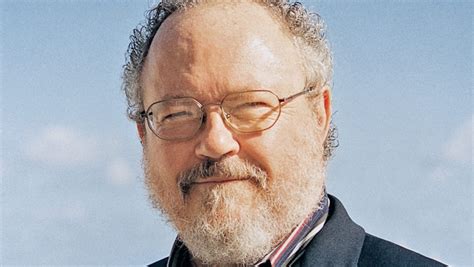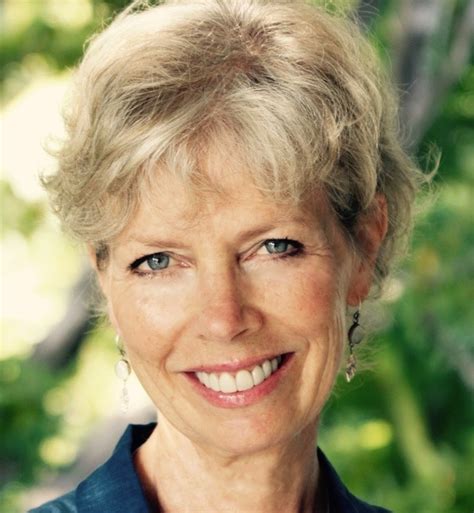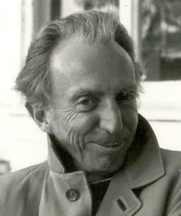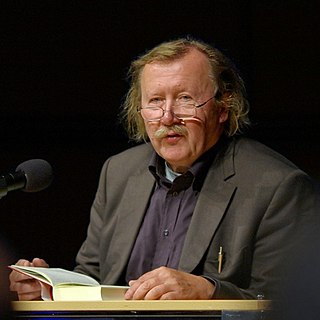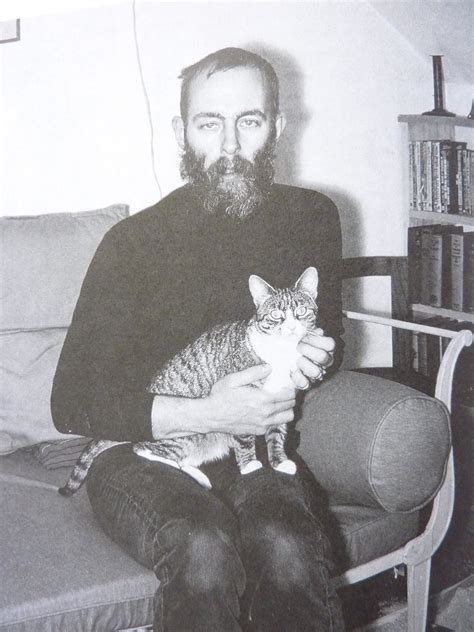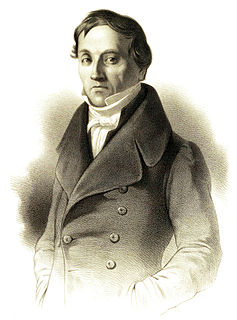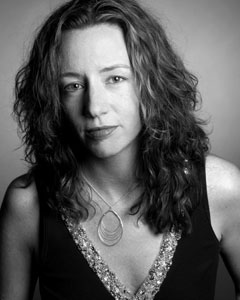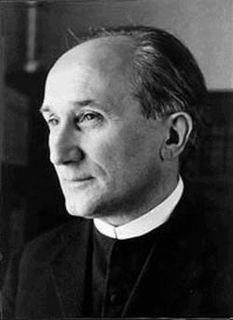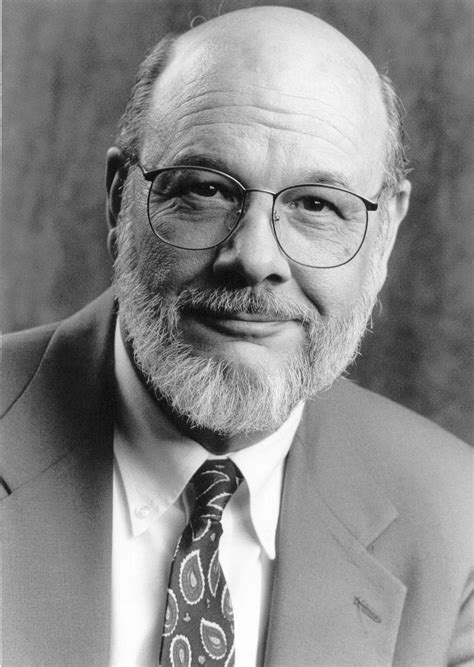Top 1197 Shaped Quotes & Sayings - Page 20
Explore popular Shaped quotes.
Last updated on April 14, 2025.
One day, the Devil decided to go out of business. His tools, therefore, being for sale, were put on display; and Malice, Jealousy, and Pride were soon recognized by most of his prospective customers. There was one worn, tiny wedge-shaped tool bearing the highest price, however, which seemed difficult to identify. "What is that?" someone asked. "I can't quite place it." "Oh that!" Satan answered. "That is Discouragement. It is my most valuable tool. With it I can open many hearts, since so few people know that it belongs to me."
In the vaults of our hearts and brains, danger waits. All the chambers are not lovely, light and high. There are holes in the floor of the mind, like those in a medieval dungeon floor - the stinking oubliettes, named for forgetting, bottle-shaped cells in solid rock with the trapdoor in the top. Nothing escapes from them quietly to ease us. A quake, some betrayal by our safeguards, and sparks of memory fire the noxious gases - things trapped for years fly free, ready to explode in pain and drive us to dangerous behavior.
Most people believe a new idea must be fully baked and ready-for-primetime. That is like saying a newborn child should have a college degree and be self-sustaining on day one. Like children, new ideas need to be nurtured, shaped, and protected. People often hold back ideas since they are not ready to defend sharp criticism. Companies that celebrate "creative sparks" and reserve judgment while ideas mature are the ones that enjoy significantly more creativity and innovation.
The design of a book is the pattern of a reality controlled and shaped by the mind of the writer. This is completely understood about poetry or fiction, but it is too seldom realized about books of fact. And yet the impulse which drives a man to poetry will send another man into the tide pools and force him to try to report what he finds there.... It would be good to know the impulse truly, not to be confused by the 'services to science' platitudes or the other little mazes into which we entice our minds so that they will not know what we are doing.
The more subtle thing is more speculative. The world is well past its long-term carrying capacity for human beings living a European, much less an American, lifestyle predicated on planned obsolescence. International economic growth is largely a matter of accelerated movement of materials from mines and forests to the dump. Instead of saving and buying decent furniture we can pass on to our children, we charge our credit cards for shaped heaps of sawdust and glue that fall apart in less than three or four years.
Now take a human body. Why wouldn't you like to see a human body with a curling tail with a crest of ostrich feathers at the end? And with ears shaped like acanthus leaves? It would be ornamental, you know, instead of the stark, bare ugliness we have now. Well, why don't you like the idea? Because it would be useless and pointless. Because the beauty of the human body is that is hasn't a single muscle which doesn't serve its purpose; that there's not a line wasted; that every detail of it fits one idea, the idea of a man and the life of a man.
In harmony with the Tao, the sky is clear and spacious, the earth is solid and full, all creature flourish together, content with the way they are, endlessly repeating themselves, endlessly renewed. When man interferes with the Tao, the sky becomes filthy, the earth becomes depleted, the equilibrium crumbles, creatures become extinct. The Master views the parts with compassion, because he understands the whole. His constant practice is humility. He doesn't glitter like a jewel but lets himself be shaped by the Tao, as rugged and common as stone.
And all the world is football-shaped
It's just for me to kick in space
And I can see, hear, smell, touch, taste
And I've got one, two, three, four, five
Senses working overtime
Trying to take this all in
I've got one, two, three, four, five
Senses working overtime
Trying to taste the difference 'tween a lemon and a lime
Pain and pleasure and the church bells softly chime.
Nico strode forward. The enemy army fell back before him like he radiated death, which of course he did. Through the face guard of his skull-shaped helmet, he smiled. "Got your message. Is it too late to join the party?" "Son of Hades." Kronos spit on the ground. "Do you love death so much you wish to experience it?" "Your death," Nico said, "would be great for me." "I'm immortal, you fool! I have escaped Tartarus. You have no business here, and no chance to live." Nico drew his sword-three feet of wicked sharp Stygian iron, black as a nightmare. "I don't agree.
But truth be told, I'm not as dour-looking as I would like. I'm stuck with this round, sweetie-pie face, tiny heart-shaped lips, the daintiest dimples, and apple cheeks so rosy I appear in a perpetual blush. At five foot four, I barely squeak by average height. And then there's my voice: straight out of second grade. I come across so young and innocent and harmless that I have been carded for buying maple syrup. Tourists feel more safe approaching me for directions, telemarketers always ask if my mother is home, and waitresses always, always call me 'Hon.
Every sentence has a truth waiting at the end of it and the writer learns how to know it when he finally gets there. On one level this truth is the swing of the sentence, the beat and poise, but down deeper it's the integrity of the writer as he matches with the language. I've always seen myself in sentences. I begin to recognize myself, word by word, as I work through a sentence. The language of my books has shaped me as a man. There's a moral force in a sentence when it comes out right. It speaks the writer's will to live.
Coca-Cola remains emblematic of the best and worst of America and Western civilization. The history of Coca-Cola is the often funny story of a group of men obsessed with putting a trivial soft drink "within an arm's reach of desire." But at the same time, it is a microcosm of American history. Coca-Cola grew up with the country, shaping and shaped by the times. The drink not only helped to alter consumption patterns, but attitudes toward leisure, work, advertising, sex, family life, and patriotism.
The woman dashed up the staircase toward the library's main doors. Arriving at the top of the stairs, she grabbed the handle and tried desperately to open each of the three giant doors. The library's closed, lady. But the woman didn't seem to care. She seized one of the heavy ring-shaped handles, heaved it backward, and let it fall with a loud crash against the door. Then she did it again. And again. And again. Wow, the homeless man thought, she must really need a book.
Up there we see everything, Oakland to the left, El Cerrito and Richmond to the right, Marin forward, over the Bay, Berkeley below, all red rooftops and trees of cauliflower and columbine, shaped like rockets and explosions, all those people below us, with humbler views; we see the Bay Bridge, clunkety, the Richmond Bridge, straight, low, the Golden Gate, red toothpicks and string, the blue between, the blue above, the gleaming white Land of the Lost/Superman's North Pole Getaway magic crystals that are San Francisco.
The infinitesimal seedlings became a forest of trees that grew courteously, correcting the distances between themselves as they shaped themselves to the promptings of available light and moisture, tempering the climate and the temperaments of the Scots, as the driest land became moist and the wettest land became dry, seedlings finding a mean between extremes, and the trees constructing a moderate zone for themselves even into what I would have called tundra, until I understood the fact that Aristotle taught, while walking in a botanic garden, that the middle is fittest to discern the extremes.
Like anyone else, a lot of what I do and how I think has been shaped by my family and my overall life experience. Many who know me say I am also defined by my curiosity and thirst for learning. I buy more books than I can finish. I sign up for more online courses than I can complete. I fundamentally believe that if you are not learning new things, you stop doing great and useful things. So family, curiosity and hunger for knowledge all define me.
Our actual lives, including our values, our social relations, our self-conceptions, and many of our concepts, are pervasively shaped both by the knowledge and by the fact that we will someday die - that we are subject to extreme temporal scarcity. There is no reason to think that, if we were immortal, the same things would continue to matter to us. We have little or no idea what, if anything, would matter to immortal beings, or even how such beings would think of themselves.
My personal beliefs were shaped more by experience and by watching the news when I was young: images of angelic-looking college students in Mississippi crying like the world was ending because black people were being allowed on their campus; the slow mounting horror of Vietnam on the evening news every night; sitting with my parents in front of the TV and being appalled at the way the Chicago police were treating the protesters during the '68 Democratic convention. Being eyed with suspicion because of my age and the way I wore my hair.
I think a lot of us who had these oddly shaped childhoods, in some ways we're hyper-capable. We're able to take care of ourselves in a lot of ways but it's like we're missing a piece. When everyone went to school to learn how to be a regular person we were sick that day. We compensate other ways. Alcohol and drugs is one of those ways. Instead of learning how to cope with our problems and deal with hardship and deal with anger, we just decide to get drunk and not care.
But I, that am not shaped for sportive tricks, Nor made to court an amorous looking-glass; I, that am rudely stamped, and want love's majesty To strut before a wanton ambling nymph; I, that am curtailed of this fair proportion, Cheated of feature by dissembling nature, Deformed, unfinished, sent before my time Into this breathing world, scarce half made up, And that so lamely and unfashionable That dogs bark at me as I halt by them,-- Why, I, in this weak piping time of peace, Have no delight to pass away the time, Unless to spy my shadow in the sun.
There were doors that looked like large keyholes, others that resembled the entrances to caves, there were golden doors, some were padded and some were studded with nails, some were paper-thin and others as thick as the doors of treasure houses; there was one that looked like a giant's mouth and another that had to be opened like a drawbridge, one that suggested a big ear and one that was made of gingerbread, one that was shaped like an oven door, and one that had to be unbuttoned.
We’re all searching for something to fill up what I like to call that big, God-shaped hole in our souls. Some people use alcohol, or sex, or their children, or food, or money, or music, or heroin. A lot of people even use the concept of God itself. I could go on and on. I used to know a girl who used shoes. She had over two-hundred pairs. But it’s all the same thing, really. People, for some stupid reason, think they can escape their sorrows.
The obvious liberal rejoinders come to mind: What about the child whose home is hit by a bomb? Did she have some bomb-shaped thoughtform that brought ruin down on her head? And did my [fired white-collar workers] boot-camp mates cause the layoffs that drove them out of their jobs by "vibrating" at a layoff-related frequency? It seems inexcusably cruel to tell people who have reach some kind of personal nadir that their probem is entirely of their own making.
Sting told me if I love somebody I should set them free. I doubt Sting ever loved anyone with wings. If he did he might rethink such a stupid sentiment. I suppose the point is to wait for your love to come back to you voluntarily. I wonder if there’s a difference between setting something free and letting it go? I probably did it wrong. I should stop taking advice from my radio. I worry that you’re lost. I keep a heart-shaped cage unlocked for you, out on the street where it can easily be seen. So if one day you return at least you’ll have a place to stay.
Atheism is so senseless & odious to mankind that it never had many professors. Can it be by accident that all birds beasts & men have their right side & left side alike shaped (except in their bowels) & just two eyes & no more on either side the face & just two ears on either side the head & a nose with two holes & no more between the eyes & one mouth under the nose & either two fore legs or two wings or two arms on the shoulders & two legs on the hips one on either side & no more?
Storytelling is an act of cruelty. We are cruel to our characters because to be kind is to invite boredom, and boredom in storytelling is synonymous with big doomy death-shaped death. So: be cruel to your protagonist. Rob him of something. Something important. Something he needs. A weapon. An asset. A piece of knowledge. A loved one. A DELICIOUS PIE. Take it away! Force him to operate without it. Conflict reinvigorates stale stories. New conflict, or old conflict that has evolved and grown teeth.
A change fell upon all things. Strange brilliant flowers, star-shaped, burst out upon the trees where no flowers had been before. The tints of the green carpet deepened; and when, one by one, the white daisies shrank away, there sprang up, in place of them, ten by ten of the ruby-red asphodel. And life arose in our paths; for the tall flamingo hitherto unseen, with all gay glowing birds, flaunted his scarlet plumage before us. The golden and silver fish haunted the river.
I take the seashell from my jeans pocket and rub my fingers across its silken, indented surface, shallow as my own open hand. This chalice, subtly shaped by some divine intelligence to allow water to flow in and out with ease, is what I aspire to become: a vessel through which feelings can pour in and spill right out again, without all the grasping and holding that obstructs the flow. Can I be as serene and simple as this bleached shell, rubbed smooth by wind and water, receiving and releasing, filling and emptying and filling again, eternally receptive to the currents of life?
Conceive a jelly-fish such as sails in our summer seas, bell-shaped and of enormous size - far larger, I should judge, than the dome of St. Paul's. It was of a light pink colour veined with a delicate green, but the whole huge fabric so tenuous that it was but a fairy outline against the dark blue sky. It pulsated with a delicate and regular rhythm. From it there depended two long drooping, green tentacles, which swayed slowly backwards and forwards. This gorgeous vision passed gently with noiseless dignity over my head, as light and fragile as a soap-bubble, and drifted upon its stately way.
The Lesson You've Got to learn is the someday you'll someday stagger to, blinking in cold light, all tears shed, ready to poke your bovine head in the yoke they've shaped. Everyone learns this. Born, everyone breathes, pays tax, plants dead and hurts galore. There's grief enough for each. My mother learned by moving man to man, outlived them all. The parched earth's bare (once she leaves it) of any who watched the instants I trod it. Other than myself, of course. I've made a study of bearing and forbearance. Everyone does, it turns out, and note those faces passing by: Not one's a god.
Since I started as a comic person then became a musician to me it was interesting because I have this really great, interesting fanbase that's really smart and energetic and uh how could I steer them towards a medium that shaped who I was? You know, steer them toward comics. That was really the goal, to bring a lot of readers cuz they were reading a lot of comics but most of them hadn't been reading American comics, they'd be reading manga sitting on the floor of a Barnes and Noble.
So briefly do we raise our heads, so quick sink back. For a moment we are lifted by a wave of time, are tossed up into the sunlight of consciousness We cannot see so far as where this wave began, but maybe we have waited some thousand years for it to come, and now it is on us. This is our moment, the wave is breaking. The crest which passes through us now in tumult was shaped by the past, and we in this moment are able to shape the crest which is to come.
A famous anecdote concerning Cuvier involves the tale of his visitation from the devil—only it was not the devil but one of his students dressed up with horns on his head and shoes shaped like cloven hooves. This frightening apparition burst into Cuvier's bedroom when he was fast asleep and claimed:
'Wake up thou man of catastrophes. I am the Devil. I have come to devour you!'
Cuvier studied the apparition carefully and critically said,
'I doubt whether you can. You have horns and hooves. You eat only plants.
If Los Angeles is a woman reclining billboard model with collagen-puffed lips and silicone-inflated breasts, a woman in a magenta convertible with heart-shaped sunglasses and cotton candy hair; if Los Angeles is this woman, then the San Fernando Valley is her teenybopper sister. The teenybopper sister snaps bug stretchy pink bubbles over her tongue and checks her lipgloss in the rearview mirror, . . . Teeny plays the radio too loud and bites her nails, wondering if the glitter polish will poison her.
In truth, philosophy is the mode of thought shaped by the most radical form of prejudice: the passion of being-in-the-world. With the sole exception of specialists in the field, virtually everyone senses that anything which offers less than this passion play remains philosophically trivial. Cultural anthropologists suggest the appealing term 'deep play' for the comprehensively absorbing preoccupations of human beings. From the perspective of a theory of the practising life we would add: the deep plays are those which are moved by the heights.
The dawn came - not the flaming sky that promises storm, but a golden dawn of infinite promise. The birds came flying up out of the east in wedge-shaped formation, and the mist lifted in soft wreaths of sun-shot silver. Colour came back to the world. The grass glowed with a green so vivid that it seemed pulsing, like flame, from some hidden fire in the earth, the distant woods took on all the amazing deep crimsons and purples of their winter colouring, the banks were studded with their jewels of lichens and bright moss, and above the wet hedges shone with sun-shot orbs of light.
With ferocity and extraordinary craft, Lizzie Harris has made a book of poems that resonates far beyond the personal stories it tells. Stop Wanting reveals, in every lyric, its author's profound metaphorical gifts. In its ironies and intensities, it brings to mind a writer like the young Sylvia Plath, though what is startling about Harris' s work is the way it combines those gifts with a muted, deft self-awareness. Most of all, these are wonderfully shaped, powerful, and surprising poems-a startling debut.
Does religion fill a much needed gap? It is often said that there is a God-shaped gap in the brain which needs to be filled: we have a psychological need for God -- imaginary friend, father, big brother, confessor, confidant -- and the need has to be satisfied whether God really exists or not. But could it be that God clutters up a gap that we'd be better off filling with something else? Science, perhaps? Art? Human friendship? Humanism? Love of this life in the real world, giving no credence to other lives beyond the grave?
It's important, therefore, to know who the real enemy is, and to know the function, the very serious function of racism, which is distraction. It keeps you from doing your work. It keeps you explaining over and over again, your reason for being. Somebody says you have no language and so you spend 20 years proving that you do. Somebody says your head isn't shaped properly so you have scientists working on the fact that it is. Someone says you have no art so you dredge that up. Somebody says you have no kingdoms and so you dredge that up. None of that is necessary. There will always be one more thing.
When I was at school my jography told me th' earth was shaped like a orange an' I found out before I was ten that th' whole orange doesn't belong to nobody. No one owns more than his bit of a quarter an' there's times it seems there's not enow quarters to go around. But don't you-none o' you- think as you own th' whole orange or you'll find out you're mistaken, an' you won't find it without hard knocks. What children learns from children, is that there's no sense grabbin' at th' whole orange-peel an' all. If you do you'll likely not get even th' pips, an' them's too bitter to eat.
Where woman has taken her place in business she has found her method ready-shaped for her, and following that, she does her work,if with a certain amount of monotony, yet without undue fatigue. Her hours are fixed, and as a rule she gets needful change of scene as she goes to her business and returns to her home or the place where she lives. But the "home- maker" has not, nor can she have, any such change, and her hours are always from the rising of the sun beyond the going down of the same.
Conservatives believe in traditional values. Not because we want to impose our views on anyone, but because to abandon those values would be to ignore our history. Americans are not the most generous people on earth because our laws make us generous. People do not contribute to charity in this country in record amounts because we have a tax break from it. We do so because this nation has been shaped by Judeo-Christian principles that teach us that we have an obligation to care for one another.
New Hampshire has always been cheap, mean, rural, small-minded, and reactionary. It's one of the few states in the nation with neither a sales tax nor an income tax. Social services are totally inadequate there, it ranks at the bottom in state aid to education--the state is literally shaped like a dunce cap--and its medical assistance program is virtually nonexistent. Expecting aid for the poor there is like looking for an egg under a basilisk.... The state encourages skinflints, cheapskates, shutwallets, and pinched little joykillers who move there as a tax refuge to save money.
Marriage and parenting are the two strongest vows anyone will ever make. When you see these commitments being carelessly discarded, you can be certain that the ethics of that generation have been abandoned. ... What our society needs is a good dose of biblical ethic from God's people - the kind of ethic that requires us to keep our word no matter what the costs. Situational ethics have so shaped our society that even God's people have lost the concept of absolutes when it comes to keeping our word.
I told myself that if I hoped to write a book that helped people to take a good look at some of the names that have been written on their nametags, I would need to do the same. I had to write Hello, My Name Is from a place of authenticity, even vulnerability, being willing to let God show me areas of my life that have been incorrectly shaped by false identities I've allowed to hang around for too long. I truly felt like, 'if this book is helping me, then it's going to help someone else.'
If you want to be a fiction writer, you need to start reading like a fiction writer. To do so, you need to learn about craft so that the next time you pick up a contemporary short story, you're reading it not as an abstraction floating in formaldehyde, existing simply for the theorist's dull scalpel to saw on, but as a concrete thing constructed out of words and shaped by syntax, brought to life by a writer who made several thousand choices, some large, some small, before letting that imperfect beauty, the story, walk on its own two feet.
If you come from a working-class background, you can't afford to write full time, because you're just not being paid. Basically, all my arguments come down to Marxist doctrine: The world is shaped by money, so the only voices you'll hear are the ones with money behind them. But thankfully, culture and cool are some things that circumvent money, because if you're cool, people will want to give you money - suddenly you shape the market and people start coming to you. Which is why culture has always been a traditional way out for working-class people.
The distinguishing of the strata, or layers, in the embryonic membrane was a turning-point in the study of the history of evolution, and placed later researches in their proper light. A division of the (disc-shaped) embryo into an animal and a plastic part first takes place. In the lower part (the plastic or vegetative layer) are a serous and a vascular layer, each of peculiar organization. In the upper part also (the animal or serous germ-layer) two layers are clearly distinguishable, a flesh-layer and a skin-layer. (1828)
I've heard it said that grace is God reaching God's hands into the world. And the Bible tells us that we are part of the body of Christ, that if we let the Spirit move through us, we can become the hands of Christ on earth. Hands that heal, bless, unite, and love. I'd like to think God's hands are a bit like Grace's man hands—gentle but big, busy, and tough. God's hands are those of a creator—an artist who molded and shaped the universe out of a void, who hewed matter from nothingness.
Here's how the people live here, in big house-shaped boxes to keep off 'rain' and 'snow,' holes cut in the sides so they can see out. They move around in smaller boxes, painted different colours, with wheels on the corners. They need this box-culture because each person thinks of herself and himself as locked in a box called a 'body,' arms and legs, fingers to move pencils and tools, languages because they've forgotten how to communicate, eyes because they've forgotten how to see. Odd little planet. Wish you were here. Home soon.
I grew up on a farm and, prior to my father's murder, I wanted to get away from the farm, and away from South Georgia where the Jim Crow laws absolutely controlled anything and everything we did. So, my goal was to leave once I completed high school. But on the night of my father's murder, I made a commitment that I would not leave the South, that I would stay and devote my life to working for change. So, my father's murder has shaped the course of my life even up to this very day.
America is not the crude stereotype of a self-interested empire. The United States has been one of the greatest sources of progress that the world has ever known. We were born out of revolution against an empire. We were founded upon the ideal that all are created equal. And we have shed blood and struggled for centuries to give meaning to those words, within our borders and around the world. We are shaped by every culture. Drawn from every end of the Earth, and dedicated to a simple concept, E pluribus unum: Out of many, one.
The word is a thing of mystery, so volatile that it vanishes almost on the lip, yet so powerful that it decides fates and determines the meaning of existence. A frail structure shaped by fleeting sound, it yet contains the eternal: truth. Words come from within, rising as sounds fashioned by the organs of a man's body, as expressions of his heart and spirit. He utters them, yet he does not create them, for they already existed independently of him. One word is related to another; together they form the great unity of language, that empire of truth-forms in which a man lives.
Look at the way the walls curve,' Macey said, her gaze panning around the strangely shaped room. 'it's almost like...' 'The library,' Liz said, and immediately I knew that she was right. It was exactly like the library at the Gallagher Academy, from the position of the fireplace to the tall windows that overlooked the grounds. 'How do you know?' Zach asked. Liz looked totally insulted. 'Because...uh...library.' 'Okay.' Zach threw up his hands. 'Point taken.
I believe faith is a human universal. We are endowed at birth with nascent capacities for faith. How these capacities are activated and grow depends to a large extent on how we are welcomed into the world and what kinds of environments we grow in. Faith is interactive and social; it requires community, language, ritual and nurture. Faith is also shaped by initiatives from beyond us and other people, initiatives of spirit or grace. How these latter initiatives are recognized and imaged, or unperceived and ignored, powerfully affects the shape of faith in our lives.
When you cut it up, put the pieces in your mouth and swallowed them, the British hamburger shaped itself to the bottom on your stomach like ballast, while interacting with your gastric juices to form an incipient belch of enormous potential, an airship which had been inflated in a garage. This belch, when silently released, would cause people standing twenty yards away to start examining the soles of their shoes. The vocalized version sounded like a bag of tools thrown into a bog.

